College radio Live Radio Stations
Radio Stations
- 22 West Radio - 88.1 FM KKJZ-HD3 (HD Radio Feed)

- 88.1 WRFL Radio Free Lexington

- 88.3FM WXOU Radio88.3FM WXOU Radio
- 89.7 KACC
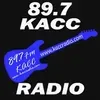
- 90.5 WASU FM The App

- 90.5 WKHS
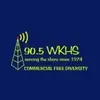
- Bermuda College RadioBermuda College Radio
- BYU-Idaho KBYI 94.3

- CaRaMeCaRaMe
- CFRC 101.9 Queen's University Kingston, ON
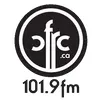
- CHSR-FM 97.9

- CIOI 101.5 The Hawk FM (Hamilton)

- CISM 89,3 MHz FM Université de Montréal, QC

- CIVL-FM 101.7 (192k MP3)

- CJAM 99.1 FMCJAM 99.1 FM
- CJLX 91.3 "91X" Loyalist College - Belleville, ON

- CKCU FM 93.1CKCU FM 93.1
- CKDJ 107.9 Algonquin College, Ottawa

- CKHC 96.9 "Radio Humber" Humber College, Toronto, ON
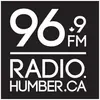
- CRNC The Heat

- CyC Radio (Instituto Caro y Cuervo)CyC Radio (Instituto Caro y Cuervo)
- Dash Indie

- Emisora Cultural de Pereira RAC (Remigio Antonio Cañarte) (HJB44 97.7 FM)Emisora Cultural de Pereira RAC (Remigio Antonio C...
- Emisora HJUT | Universidad de Bogotá Jorge Tadeo LozanoEmisora HJUT | Universidad de Bogotá Jorge Tadeo L...
- Hertz 87.9

- Hochschulradio AachenHochschulradio Aachen
- HoRadS

- IDC International Radio

- Ignite Radio (Mohawk College) Hamilton, ONIgnite Radio (Mohawk College) Hamilton, ON
- ITU College Radio -ClassicalITU College Radio -Classical
- ITU College Radio -Rock

- JCR – Jones College RadioJCR – Jones College Radio
- KACV 89.9 "FM 90" Amarillo College, TXKACV 89.9 "FM 90" Amarillo College, TX
- KAOR-FM Coyote Radio 91.9 (128k MP3)
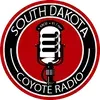
- KBCU-FM 88.1 Bethel College - North Newton, KS

- KBVR-FM Oregon State University 88.7 FM

- KCHO 91.7 "North State Public Radio" Chico, CA

- KCPR Cal Poly Radio

- KCPR Cal Poly Radio

- KCSB 91.9 Santa Barbara, CA

- KCSB UC Santa Barbara

- KCSS 91.9 Turlock, CA

- KDVS DavisKDVS Davis
- KEOL Eastern Oregon University

- KEOS 89.1 College Station, TXKEOS 89.1 College Station, TX
- KLPR-FM Loper Radio 91.1 (128k MP3)

- KMHD 2KMHD 2
- KMSC Fusion 93

- KMSC Fusion 93 (24kbps)

- KPCC 89.3 "Southern California Public Radio" Pasadena, CA

Choose a Genre
College Radio: A Platform for Independent Voices and Creative Expression
College radio stations are a vital and unique part of the radio landscape, offering a platform for music, news, and cultural discussions that often go unheard on commercial radio. These stations, typically operated by students and staff members at colleges and universities, provide an outlet for independent artists and a space for students to develop practical skills in broadcasting, journalism, and production.
A Focus on Non-Commercial, Independent Music
One of the defining features of college radio is its non-commercial nature. These stations are not driven by advertising revenue or corporate sponsorships, allowing them to focus on providing diverse programming that may not be played on mainstream commercial stations. College radio stations often feature a wide variety of musical genres, including indie rock, hip-hop, electronic, world music, experimental sounds, and more. This gives listeners access to music that is often overlooked by commercial radio, and it helps to expose emerging artists to a broader audience.
The diversity of genres on college radio reflects the eclectic tastes of the student body and the surrounding community. Whether you're a fan of underground indie bands, up-and-coming hip-hop artists, or obscure world music, college radio stations offer a musical experience that’s fresh, diverse, and always evolving.
A Platform for Social and Community Issues
In addition to their rich music programming, college radio stations also serve as important hubs for news, public affairs, and talk shows. Many college radio stations feature shows that address topics relevant to students, such as campus events, social justice issues, politics, and global affairs. These programs often encourage lively debates, conversations, and critical thinking about the world, providing students and listeners with a voice on issues that matter to them.
By giving students the opportunity to produce their own talk shows, news segments, and interviews, college radio fosters a culture of civic engagement and open dialogue. It also serves as a platform for discussing important social and political topics, often amplifying voices that may not be heard on more mainstream outlets.
Training Grounds for Aspiring Broadcasters and Journalists
College radio stations are instrumental in the development of future broadcasters, journalists, and media professionals. By providing hands-on experience in a real-world setting, these stations allow students to hone their broadcasting skills, learn about production, and experiment with different formats. Whether it’s managing a show, conducting interviews, or running technical equipment, college radio stations offer invaluable training that helps students prepare for careers in the media industry.
For many students, working at their college radio station is a stepping stone to professional careers in journalism, broadcasting, or public relations. It gives them practical experience that goes beyond the classroom, providing a foundation for future employment opportunities.
Engaging with the Local Community
College radio stations are deeply embedded in their local communities. They often host events, concerts, and fundraisers that bring students and community members together. These stations also frequently partner with local organizations, charities, and businesses, helping to strengthen the bond between the college and the surrounding area. Whether it's sponsoring a community service project or promoting a local event, college radio stations play a significant role in fostering a sense of community and shared culture.
Through these community-driven initiatives, college radio becomes more than just a source of entertainment and education—it becomes a valuable resource that contributes to the social and cultural fabric of its location.
A Vital Part of the Radio Landscape
College radio is a vibrant and essential part of the radio world, offering something that commercial stations often can’t: a space for independent voices, creative expression, and meaningful community engagement. By playing diverse music, addressing important social issues, and providing opportunities for students to gain real-world media experience, college radio stations are a crucial aspect of the radio landscape.
As an alternative to mainstream commercial programming, college radio remains a source of innovation and authenticity, championing independent music, local culture, and the voices of young broadcasters and journalists. Whether you're tuning in for new music, thought-provoking discussions, or to support the next generation of media professionals, college radio stations continue to be a significant and cherished part of our media ecosystem.
College radio stations are a vital and unique part of the radio landscape, offering a platform for music, news, and cultural discussions that often go unheard on commercial radio. These stations, typically operated by students and staff members at colleges and universities, provide an outlet for independent artists and a space for students to develop practical skills in broadcasting, journalism, and production.
A Focus on Non-Commercial, Independent Music
One of the defining features of college radio is its non-commercial nature. These stations are not driven by advertising revenue or corporate sponsorships, allowing them to focus on providing diverse programming that may not be played on mainstream commercial stations. College radio stations often feature a wide variety of musical genres, including indie rock, hip-hop, electronic, world music, experimental sounds, and more. This gives listeners access to music that is often overlooked by commercial radio, and it helps to expose emerging artists to a broader audience.
The diversity of genres on college radio reflects the eclectic tastes of the student body and the surrounding community. Whether you're a fan of underground indie bands, up-and-coming hip-hop artists, or obscure world music, college radio stations offer a musical experience that’s fresh, diverse, and always evolving.
A Platform for Social and Community Issues
In addition to their rich music programming, college radio stations also serve as important hubs for news, public affairs, and talk shows. Many college radio stations feature shows that address topics relevant to students, such as campus events, social justice issues, politics, and global affairs. These programs often encourage lively debates, conversations, and critical thinking about the world, providing students and listeners with a voice on issues that matter to them.
By giving students the opportunity to produce their own talk shows, news segments, and interviews, college radio fosters a culture of civic engagement and open dialogue. It also serves as a platform for discussing important social and political topics, often amplifying voices that may not be heard on more mainstream outlets.
Training Grounds for Aspiring Broadcasters and Journalists
College radio stations are instrumental in the development of future broadcasters, journalists, and media professionals. By providing hands-on experience in a real-world setting, these stations allow students to hone their broadcasting skills, learn about production, and experiment with different formats. Whether it’s managing a show, conducting interviews, or running technical equipment, college radio stations offer invaluable training that helps students prepare for careers in the media industry.
For many students, working at their college radio station is a stepping stone to professional careers in journalism, broadcasting, or public relations. It gives them practical experience that goes beyond the classroom, providing a foundation for future employment opportunities.
Engaging with the Local Community
College radio stations are deeply embedded in their local communities. They often host events, concerts, and fundraisers that bring students and community members together. These stations also frequently partner with local organizations, charities, and businesses, helping to strengthen the bond between the college and the surrounding area. Whether it's sponsoring a community service project or promoting a local event, college radio stations play a significant role in fostering a sense of community and shared culture.
Through these community-driven initiatives, college radio becomes more than just a source of entertainment and education—it becomes a valuable resource that contributes to the social and cultural fabric of its location.
A Vital Part of the Radio Landscape
College radio is a vibrant and essential part of the radio world, offering something that commercial stations often can’t: a space for independent voices, creative expression, and meaningful community engagement. By playing diverse music, addressing important social issues, and providing opportunities for students to gain real-world media experience, college radio stations are a crucial aspect of the radio landscape.
As an alternative to mainstream commercial programming, college radio remains a source of innovation and authenticity, championing independent music, local culture, and the voices of young broadcasters and journalists. Whether you're tuning in for new music, thought-provoking discussions, or to support the next generation of media professionals, college radio stations continue to be a significant and cherished part of our media ecosystem.